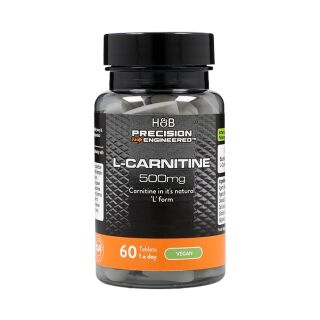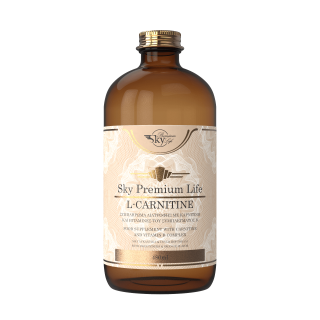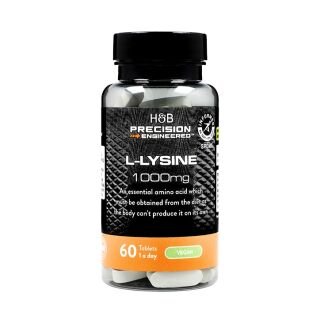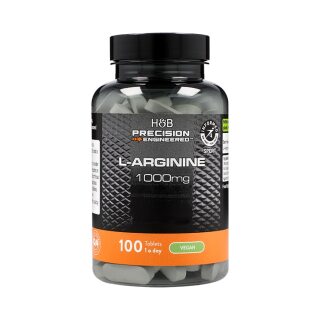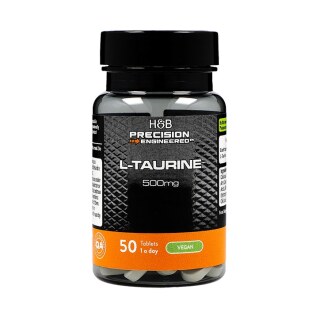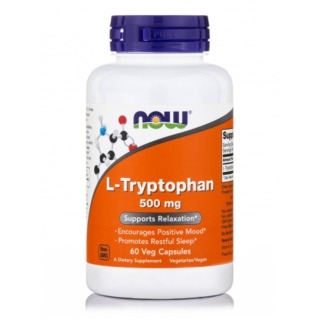What is the true value of carnitine and how can it benefit our daily basis?
Carnitine is one of the most widely used and researched substances in the world of dietary supplements, often associated with increased energy and enhanced physical performance. Although it's mostly known as a fat burner, it’s also used by athletes, individuals with low energy levels, and those in certain medical conditions.
Carnitine is produced endogenously from two essential amino acids—methionine and lysine—when not obtained from food, is primarily synthesized in the liver and kidneys. It plays a vital role in transporting fatty acids into the mitochondria, the body's energy powerhouses. Additionally, it supports brain and heart function, sperm motility, and is found in large amounts in skeletal and cardiac muscle—which cannot synthesize it and rely on uptake from the blood. In this way, carnitine is a key player in maintaining health and physical performance.
Carnitine and Dietary Sources
As shown in the table below, carnitine is found in higher concentrations in animal products, whereas plant-based foods contain only trace amounts. Therefore, those who are following a vegan diet may not reach their carnitine needs adequately.
Table 1: Carnitine Sources:
|
Food
|
Amount
(mg per 100g)
|
|
Cooked steak
|
49.4 – 143.5
|
|
Cooked ground beef
|
76.5 – 87.1
|
|
Whole milk
|
3.2
|
|
Cooked cod
|
3.5 – 5.9
|
|
Cooked chicken breast
|
2.4 – 4.7
|
|
Ice cream
|
2.4
|
|
Cheddar cheese
|
3.6
|
|
Whole grain bread
|
0.33
|
|
Cooked asparagus
|
0.08
|
Carnitine Forms
Most people are familiar with L-carnitine, which is the biologically active form used by the human body. However, carnitine comes in several forms:
- Acetyl-L-carnitine (ALC): Supports brain function and cognitive health, making it ideal for mental performance.
- L-carnitine L-tartrate (LCLT): Preferred for enhancing energy and endurance in physical performance.
- Propionyl-L-carnitine (PLC): Recommended for cardiovascular support, particularly for improving blood circulation and managing high blood pressure or vascular disorders.
Do You Need to Take Carnitine?
Supplementing with carnitine is not necessary for everyone, as the body can synthesize it naturally, and it is available through animal-based foods. However, in cases of increased demand—such as intense exercise, fatigue, aging, or specific medical conditions - carnitine supplementation may offer significant benefits.
Carnitine and Fertility: A helpful partner
L-carnitine has shown positive effects on fertility in both men and women due to its antioxidant properties and role in energy production. In men, it improves sperm quality by increasing motility, concentration, and morphology while reducing oxidative stress.
In women, particularly those with polycystic ovary syndrome (PCOS), L-carnitine may enhance ovulation, hormonal balance, and metabolic health. It also appears to improve egg quality and potentially support better outcomes in assisted reproductive technologies such as IVF. Despite promising findings, more studies are needed to determine optimal dosages and long-term benefits.
Carnitine and Weight Loss: How Can It Support Your Effort?
Often referred to as a fat burner, carnitine aids the transport of fatty acids into mitochondria where fat is oxidized. This is why many researchers recommend its use to enhance weight loss when combined with a calorie-restricted diet and physical activity.
Theory into Practice:
In a randomized clinical trial involving 258 adults aged 47–59 with uncontrolled Type 2 Diabetes, participants who took 2 g of L-carnitine alongside the medication orlistat (360 mg/day) for one year lost more weight (11.3 kg) compared to those taking only orlistat (9.5 kg).
A 2020 review of 37 studies found that L-carnitine supplementation significantly reduced body weight, BMI, and fat mass. However, no effect was seen on abdominal fat, suggesting it promotes general fat loss but not specifically in the belly area.
Carnitine & Dosage
Typical doses range from 500–2000 mg per day, devided into two or more servings, depending on the goal. Although generally considered safe, supplementation should be supervised by a healthcare professional to ensure appropriate dosage. Carnitine is available in liquid, tablet, and capsule forms, depending on individual needs and preferences.
Carnitine, Side Effects & Precautions
L-carnitine is considered safe for most people when taken in doses up to 2 g per day. However, mild side effects such as stomach upset or nausea may occur.
Use should be cautious and medically supervised in individuals with epilepsy, hypothyroidism, kidney issues, or those taking medications. It is also not recommended during pregnancy or breastfeeding without medical consultation.
The Bottom Line
Carnitine is not a miracle cure, but when combined with a balanced diet and healthy lifestyle, it can be a valuable support in both weight loss and fertility—contributing to an overall journey of wellness and well-being.
Scientific References
Alhasaniah A. H. (2023). l-carnitine: Nutrition, pathology, and health benefits. Saudi journal of biological sciences, 30(2), 103555.
Ismail, A. M., Abdelghafar, H. M., & Mahmoud, S. A. (2014). L-carnitine supplementation improves clomiphene citrate responsiveness in women with polycystic ovary syndrome: A randomized, double-blind, placebo-controlled trial. European Journal of Obstetrics & Gynecology and Reproductive Biology, 180, 148–152.
Mateus, F. G., Moreira, S., Martins, A. D., Oliveira, P. F., Alves, M. G., & Pereira, M. L. (2023). L-Carnitine and Male Fertility: Is Supplementation Beneficial?. Journal of clinical medicine, 12(18), 5796.
National Institutes of Health, Office of Dietary Supplements. (2022, March 29). Carnitine - Health Professional Fact Sheet. U.S. Department of Health and Human Services.
Pennisi, M., Lanza, G., Cantone, M., D'Amico, E., Fisicaro, F., Puglisi, V., Vinciguerra, L., Bella, R., Vicari, E., & Malaguarnera, G. (2020). Acetyl-L-Carnitine in Dementia and Other Cognitive Disorders: A Critical Update. Nutrients, 12(5), 1389.
Santo, S. S., Sergio, N., Luigi, D. P., Giuseppe, M., Margherita, F., Gea, O. C., Roberto, F., Gabriella, C., Giuseppe, P., & Massimiliano, A. (2006). Effect of PLC on functional parameters and oxidative profile in type 2 diabetes-associated PAD. Diabetes research and clinical practice, 72(3), 231–237.
Sawicka, A. K., Renzi, G., & Olek, R. A. (2020). The bright and the dark sides of L-carnitine supplementation: a systematic review. Journal of the International Society of Sports Nutrition, 17(1), 49.
Talenezhad, N., Mohammadi, M., Ramezani-Jolfaie, N., Mozaffari-Khosravi, H., & Salehi-Abargouei, A. (2020). Effects of l-carnitine supplementation on weight loss and body composition: A systematic review and meta-analysis of 37 randomized controlled clinical trials with dose-response analysis. Clinical nutrition ESPEN, 37, 9–23.








